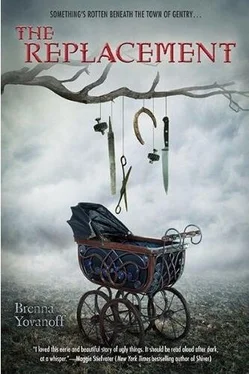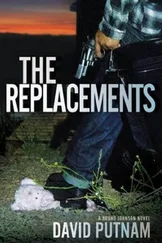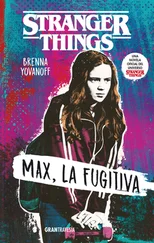I let my breath out between my teeth and then held out the zipper pull. “They’re going to kill a three-year-old girl. Not a warrior or a king. She’s a little kid—she’s like you.”
The Morrigan took the plastic bear, turning it over in her hand. Then she looked up at me, teeth sharp and glossy. “No, not like me. I’m quite sturdy. She, on the other hand, is going to bleed a river.”
When I finally spoke, my voice sounded dry. “What is your problem?”
She dropped the doll into her lap and looked up at me, still holding the plastic zipper pull. “You choose them over us. Every single time.”
“And I’ll keep doing it! This isn’t about picking sides. The Lady is completely out of her mind, and you know how to stop her. Tell me what I need to do to steal Natalie.”
The Morrigan seemed to consider that. Then she gave me a sly look. “Dead is dead,” she said. “But my sister is plenty cold herself. Sometimes she can’t tell the difference.”
“Okay, but what does that mean ?”
“Only that there are always spare children, dead in borrowed beds, buried in borrowed clothes, waiting to be made use of.” Her smile was wide and it was hard to tell if it was cruel because she was cruel or if that was just her smile.
“No.” I shook my head. “That’s not what you’re talking about—not children. You’re talking about bodies. About grave robbing.”
“Call it what you like. You asked how I managed it, and I’ve told you. The night was long, and in her sitting room full of dead beauties, I exchanged one more dead thing for a live one, and it was hours before she knew. Before she realized that her prize was gone and the silent child in her sitting room was one of ours.”
I took a deep breath and felt a little sick. “Tell me how. How you made the Lady believe the body was real.”
The Morrigan smiled, shaking her head. “Dearest, it was real.”
“How you made it seem believable, then, how you replaced something alive with something that wasn’t.”
She fidgeted with the zipper pull, rolling it between her fingers, humming and rocking. “Our children rot, but not as readily as theirs do. They’re restless things, the failed replacements.”
Over by the fireplace, the blue girls whispered and snickered, braiding each other’s brittle hair. The one I’d kissed was looking back over her shoulder at me, just once. Then she turned away, keeping her head bowed.
The Morrigan stood up, facing me with the mangy doll in one hand and the zipper pull in the other. She looked like a little girl, old-fashioned and strange, but her teeth were brutal, and her eyes were wide and black. “I’m not your keeper and I don’t owe you anything, not anymore. If you intend to cross her, that’s not my business, but you should know the cost. A person should always be familiar with the cost of his actions.”
“What’s the cost?”
She dropped the doll and it landed spread-eagle on the floor, its arms and legs sticking out at awkward angles. “If you don’t know after this morning’s escapades, I’m certainly not going to tell you.”
She smiled up at me and held out the plastic bear. After a second, I took it.
Chapter Twenty-Seven
Raising the Dead
When I came in out of the drizzle and the fog, I was relieved to see my dad’s black overcoat hanging in the hall. He was sitting in the kitchen with his back to the door. The kettle was boiling on the stove and there were cups on the counter, but Emma wasn’t with him and I wasn’t brave enough to go in and ask how he was.
His shoulders were too defeated. His head was bowed like he might be praying. Praying or crying, and neither was something I could deal with. I took off my shoes and went upstairs.
Emma’s room was a mess of books and flimsy plastic trays full of sprouts and cuttings. Her shelves ran all the way up to the ceiling and the walls were covered in tacked-up postcards and pictures of greenhouses and gardens cut from magazines.
She was sitting on her bed with her arms crossed over her chest, holding on to her shoulders and looking small. Her hands were their normal color again and she’d put Band-Aids over the scratches on her arms. She glanced up with a wary expression. “Hi.”
I didn’t have the energy to say it back. I wanted to ask why she wasn’t downstairs with our dad. Her hands were warm and alive. The blue girls’ assault on her that morning couldn’t be the reason they were sitting in different rooms.
The smell of smoke still lay over everything. It was on my clothes and in my hair. Emma’s jeans from yesterday were crumpled on the floor and I smelled the black tar smell of shingles and burned copper wiring.
Emma sat rigidly against the headboard of her bed with her hands cupping her elbows. “Why did they do that to me?”
“Because I pissed someone off.”
“Was it over something important?” Then she turned so I couldn’t see her face, looking away, in the direction of the window. I didn’t know what to say. I’d thought so at the time, but what had I really accomplished?
“I got your gloves back.” I pulled them out of my pocket and tossed them on the bed next to her, and then they just sat there, pink and dirty.
Emma picked them up. After a second, she put them on.
I sat next to her and looked around at all her clutter. There were books spread open on the desk and the floor, pages marked with sticky notes and colored paper clips. Volumes of chemistry and folklore and a little dog-eared paperback of The Ballad of Tam Lin.
Emma slumped next to me. She rested her head on my shoulder and took a deep breath. “What’s happening, Mackie?”
Her voice was barely a whisper, and she sounded sad, like she knew there was no way the answer would be good.
I leaned my cheek on the top of her head. “The same thing that always happens.”
Emma nodded and I wondered if she knew what it was that always happened or if that was part of the creepy thing about Gentry. You always knew that something was happening, but you never knew what it was.
“I know what’s wrong with Mom,” I said.
“A little chunk of granite where her heart should be?”
“Sort of, yeah. You know how I came from somewhere else? For her, it’s backward. They stole her away, then brought her back, and she couldn’t ever figure out how to be normal after that.”
Emma was still watching the pink gloves. “Are you sure?” she said.
I nodded.
She leaned against me suddenly, letting her head drop against my shoulder. We sat like that, leaning against each other. Outside, the sky was dark and heavy. Rain pattered on the window and ran down the glass, reflecting yellow and red in the light from the street.
“We have to do something terrible,” I said. “We have to dig up—” I stopped. “There was this thing that replaced Tate’s sister. We have to dig it up.”
Emma pulled away from me. “What are you talking about?”
I didn’t want to take the conversation any further. Digging up a grave was the worst kind of desecration, but I knew there was no other choice. Even if I stood back and let Natalie die, none of the bad things would stop. Kids would keep being replaced. Gentry would keep looking the other way, just like it always had. Except that then, I’d have to live with myself.
I took a deep breath. “Natalie Stewart’s alive and I think we can save her. But we can’t do it unless we have something to leave in her place. If we can get the body back, there are ways of waking them up. I’m not sure how, but I know there are ways.”
Emma’s gaze drifted to her bookshelves. “I’ve read about replacements coming back from the dead, but you need the blood, or sometimes the possessions, of the people they replaced. We’d need something of Natalie’s. You could call Tate, right?”
Читать дальше












